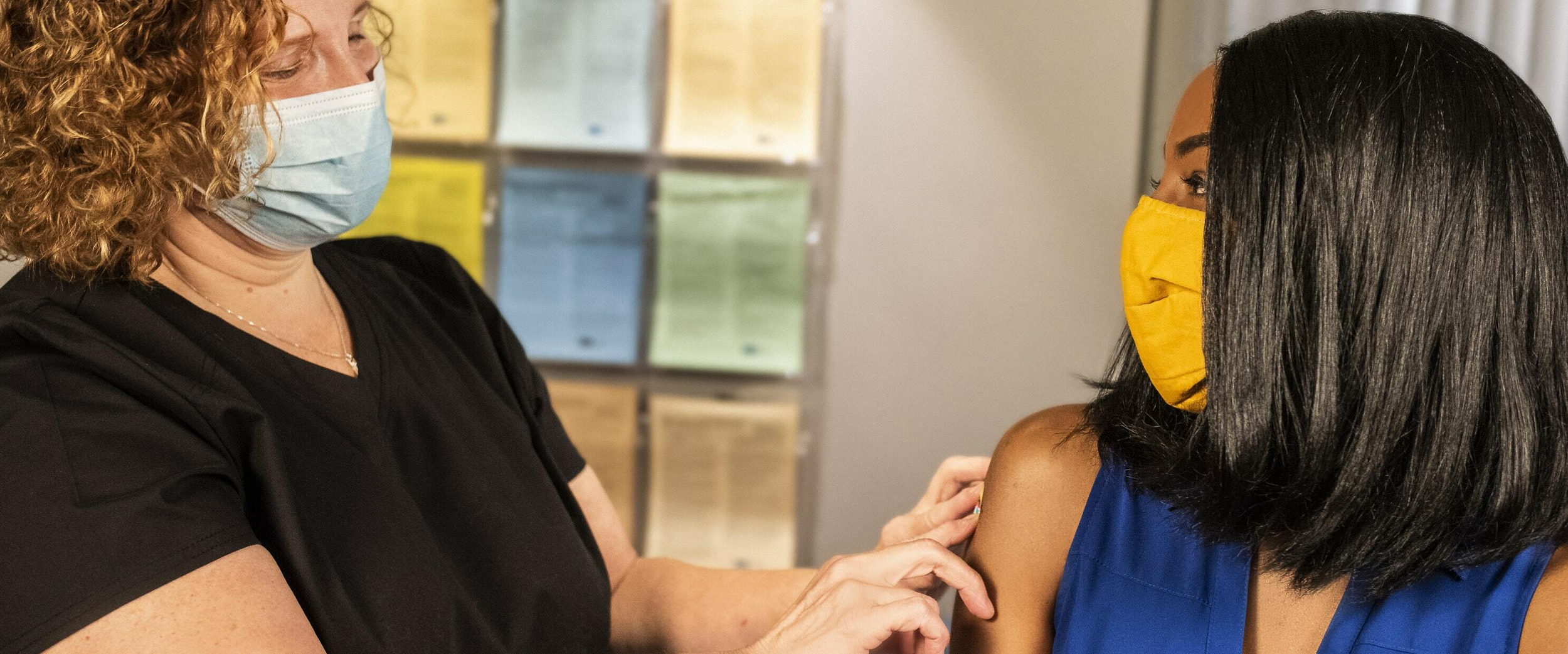Breast cancer research is critical as it provides information on the detection, prognosis, treatment, and elimination of the disease. Researchers also continuously engage in studying breast cancer to help us better understand risks associated with breast cancer as well as how breast cancer interferes with other diseases and aspects of life.
Since 2020, the world has been grappling with a pandemic caused by the COVID-19 virus. The presence of this virus has been a concern for the whole world but more particularly for individuals with other health conditions, such as people who have had a cancer diagnosis. While most research on the COVID-19 virus and cancer looked at all cancers together, there are some that specifically focused on breast cancer alone. Below we highlight 5 research studies on breast cancer, the COVID-19 virus, and the COVID-19 pandemic.
-
Characteristics and outcomes of COVID-19 infection in 45 patients with breast cancer: A multi-center retrospective study in Hubei, China
Results from this study are based on 45 breast cancer patients diagnosed with COVID-19 who were admitted to hospitals in Hubei, China between January 13, 2020 to January 18, 2020. Patients were treated for COVID-19 with routine physical therapy, medical therapy, and hospitalization. Of those requiring hospitalization, 7 patients developed complications and 4 developed severe events. Analysis of their data showed that patients who had received chemotherapy within 7 days were more likely to have severe illness and also had lower leukocyte and neutrophile counts.
-
Risk for SARS-CoV-2 infection in patients with breast cancer treated with chemotherapy, biologic therapy or active surveillance: Patient outcomes from multicenter institution in New York
This study involved data from 3,062 women being treated for breast cancer in New York City at Langone’s Perlmutter Cancer Center during the height of COVID-19 pandemic. Researchers found that women who received chemotherapy were not at an increased risk of being infected with or dying from the COVID-19 virus compared to women receiving other treatments that don’t weaken the immune system. 2.1% of the women in the study were diagnosed with COVID-19. 18 of the women diagnosed with COVID-19 were receiving chemotherapy and 43 were being treated with hormonal therapy or anti-HER2 therapy.
-
COVID-19 in breast cancer patients: a cohort at the Institut Curie hospitals in the Paris area
This study reports on the characteristics and outcomes for patients diagnosed with COVID-19 who were treated for breast cancer at Institut Curie hospitals in Paris, France. Findings for this study were based on 76 patients being treated for breast cancer, with 59 of these patients being diagnosed with COVID-19. Of the 59 patients with both COVID-19 and breast cancer, 28 were hospitalized. Based on their findings, researchers concluded that breast cancer patients may not be at a higher risk than the general population.
-
Characteristics and outcomes of patients with breast cancer diagnosed with SARSCov2 infection at an academic center in New York City
This paper reports on characteristics and outcomes for patients diagnosed with both COVID-19 and breast cancer. Data was collected on 27 patients with early- and late-stage breast cancer and COVID-19 at Columbia University Medical Center in New York City from March 10, 2020 to April 29, 2020. 7 of the patients required hospitalization, 5 required supplemental oxygen and none required intensive care-level support.
-
A prospective cohort study of the safety of breast cancer surgery during COVID-19 pandemic in the West of Scotland
Data on patients having breast cancer surgery during the first 8 weeks of hospital lockdowns in the West of Scotland region (179 patients) was compared to pre-COVID-19 data from the regional cancer registry in the same region (1,415 patients). Because immediate breast reconstruction was not being offered after mastectomy, more oncoplastic breast conservations were performed on patients during lockdowns compared to those performed on patients prior to COVID-19. Based on their results, researchers concluded that breast cancer surgery during lockdowns can be safely performed. Findings from this study also show that in select patients, oncoplastic breast conservation surgery can be a safe alternative to mastectomy and immediate breast reconstruction.







